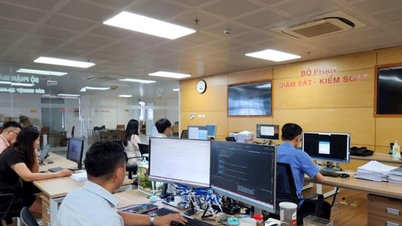Russia is currently a top target for cybercrime, with one in six successful cyberattacks worldwide occurring in Russia, mainly targeting businesses and government agencies.
A new report by cybersecurity firm Positive Technologies says that from July 2024 to September 2025, Russia will account for 14-16% of all successful cyber attacks globally, and up to 72% of those in the Commonwealth of Independent States (CIS) region.
Experts predict that by 2026, the number of successful cyber attacks against Russian organizations will increase by 30-35%, due to geopolitical tensions and rapid digitalization across the country.
A Positive Technologies representative warned that multiple hacker groups are trying to penetrate systems to gather information about Russia's global policies and plans.
Experts say Russia's public sector is the most vulnerable target, due to its rapidly expanding digital infrastructure but lack of cybersecurity personnel and a unified data protection system.
Russia has also become an attractive target due to its large energy and industrial potential. Industrial enterprises and government agencies currently top the list of successful attacks.
Aside from politically motivated attacks, profit motives still dominate: cybercriminals often sell stolen data on the darknet (websites and services that cannot be accessed via regular search engines) or use it for blackmail.
A big question for Russian experts is whether to centralize all data on a unified platform such as the Gosuslugi public service portal, or to disperse data among agencies?
According to chief engineer Mikhail Sergeev (CorpSoft24), “the optimal way is a hybrid model – centralized access but distributed storage, with strict network segmentation to limit damage if attacked.”
Despite the risks, the Russian government is still pushing forward with large-scale digital transformation projects.
On October 8, Digital Development Minister Maksut Shadayev said the ministry is considering developing a national artificial intelligence agent based on the Gosuslugi platform to automate public services, demonstrating Moscow's ambitions for further digitalization - although cybersecurity risks are still not fully controlled./.
Source: https://www.vietnamplus.vn/nuoc-nga-la-muc-tieu-hang-dau-cua-toi-pham-mang-post1069254.vnp






































![[Photo] President Luong Cuong attends the 80th Anniversary of the Traditional Day of Vietnamese Lawyers](https://vphoto.vietnam.vn/thumb/1200x675/vietnam/resource/IMAGE/2025/10/09/1760026998213_ndo_br_1-jpg.webp)
![[Photo] General Secretary To Lam visits Kieng Sang Kindergarten and the classroom named after Uncle Ho](https://vphoto.vietnam.vn/thumb/1200x675/vietnam/resource/IMAGE/2025/10/09/1760023999336_vna-potal-tong-bi-thu-to-lam-tham-truong-mau-giao-kieng-sang-va-lop-hoc-mang-ten-bac-ho-8328675-277-jpg.webp)
























![[VIDEO] AI version of BSR General Director Nguyen Viet Thang: From the mission of energy shield to the desire to contribute](https://vphoto.vietnam.vn/thumb/402x226/vietnam/resource/IMAGE/2025/10/10/1760062415027_0000371c-f2a1-31a0-38a9-e3de0ece2bbd.jpeg)












































Comment (0)